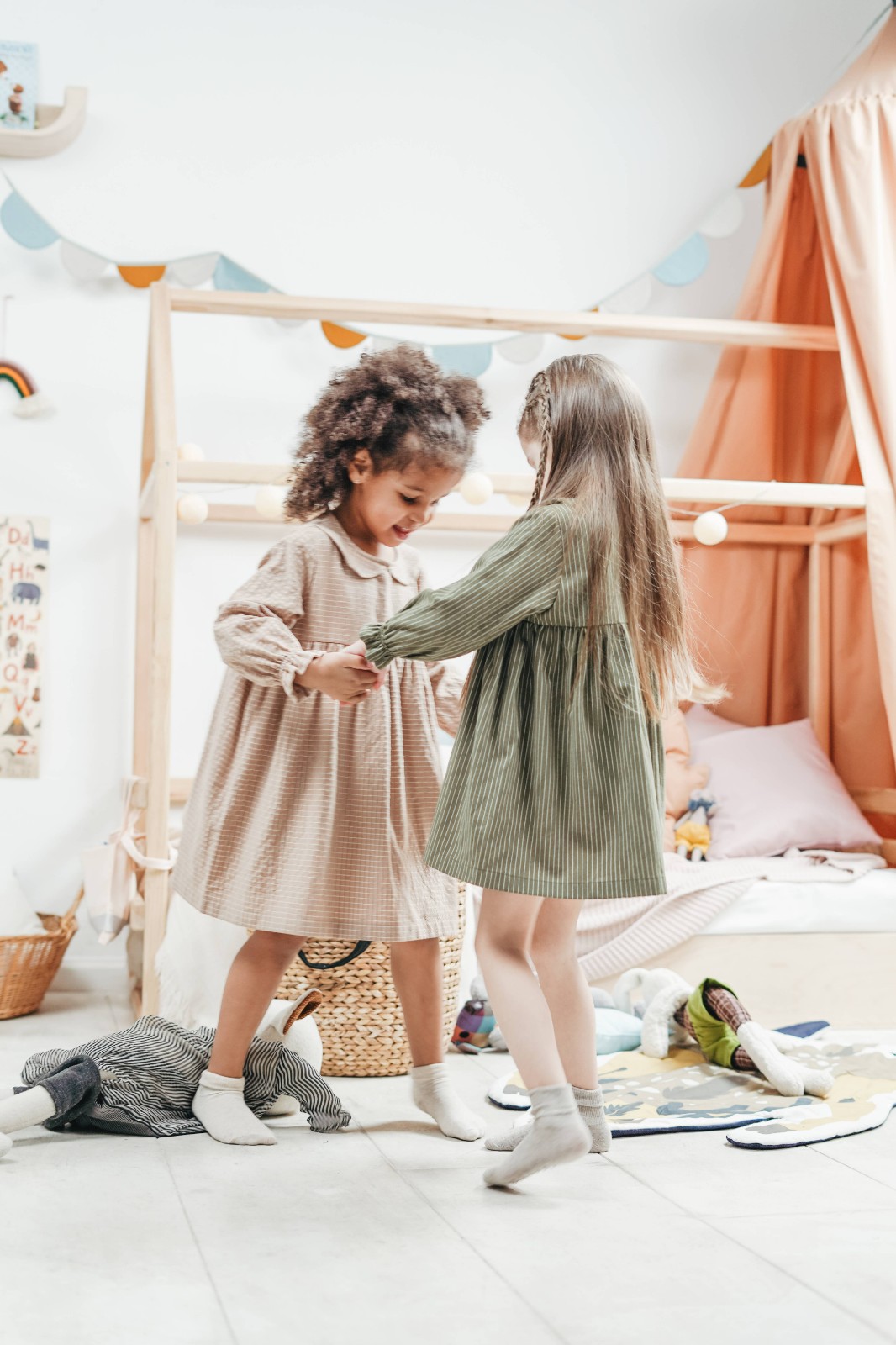
From enthusiastic dancing to silly clapping to joyful singing, there is no doubt that kids enjoy a lively tune. And there’s good reason, as parents, to encourage this love of music as much as possible. “You’d be hard-pressed to find any other activity that engages so much of a child’s whole self,” says veteran music educator Susan Darrow, CEO of Music Together LLC, “Music teaches children about love and joy, while also helping them develop language, cognitive, social, and emotional skills.”
孩子们常常随着音乐兴奋地舞蹈,或笨拙地拍手,或愉悦地歌唱;毋庸置疑,他们都非 常喜欢充满活力的曲调。苏珊•达罗(Susan Darrow)是一位非常有经验的音乐教育工 作者,同时也是Music Together的首席执行官,她也认为很多家长鼓励自己的孩子尽可 能热爱音乐的原因之一,是他们很难再找到其他的活动能像音乐一样让孩子全身心投 入。苏珊还提到,“音乐教会孩子爱和喜悦,同时也帮助他们发展语言、认知、社交和情 感能力。”
Here are four ways to help children reap all the benefits that music has to offer. 以下四种方法可以帮助儿童最大程度地获得音乐带来的种种好处。 Start early. “We are all born to be music makers,” says Darrow, “meaning we all have the equipment at birth to participate in music and to learn music.” But the reason so many people grow up feeling like they’re not musical usually has to do with when music education begins. A baby’s brain is actually primed for music learning between birth and age five, and after that it becomes more difficult, says Darrow.
宜早不宜晚。“我们生来就会创造音乐。”达罗说道,“那就意味着我们生来就具备参与音 乐活动和学习音乐的能力。”但是很多人长大之后慢慢觉得自己不太具备音乐性,与没有 较早地开始音乐教育是有关的。实际上,0-5岁的儿童的大脑对于音乐学习是完全开放 的,但是5岁之后音乐学习就会越来越难。
Build music rituals. One of the best ways for parents to teach children about music is simply to incorporate it into their lives on a daily basis. Make certain moments of the day into “music moments.” This can be a special song you always sing at bath time or even a classic bedtime lullaby. “In my family, we have dance parties around four in the afternoon every day,” says Darrow. “Just when everyone is getting a little cranky, I put on some tunes and we all just dance like crazy in the living room!”
养成好习惯。把音乐活动融入到每一天的日常生活中,也是家庭音乐教育的一种方式。 将一天之中的某个固定时间变成“音乐时间”,可以是洗澡时总会唱起的一首特别的歌, 也可以是一首经典的摇篮曲。达罗也分享道:“我的家人们在每天下午4点会一起跳舞。 在那个时间每个人都觉得心情有点古怪,我就会把音乐打开,然后大家一起在客厅疯了 一样地跳舞!”
Mirror your child. “One of the things I always teach parents is to take a cue from their child,” says Darrow. “If you hear your child make a sound while you’re singing, echo her. If you see your child wiggle while you’re dancing, wiggle back.” This is a simple way that parents can support their child’s first music attempts, just as they might do with language.
即时给回应。“我经常教给家长的一个诀窍就是读懂孩子的暗示。”达罗说道,“如果你唱 歌的时候你的孩子也发出了某个声音,重复他所唱的。如果你跳舞的时候你的孩子也试 着扭动身体,重复他所做的。”家长们可以通过如此简单的方法支持孩子最初的音乐尝试 和表达,如同他们学习语言一样。
Be a music role model. For better or worse, children basically imitate everything their parents do, Kids learn everything from parents! And a love of music is no exception, which is one of the reasons that our music classes encourage parent participation. It’s important that parents, whether they’re talented musicians or not, teach children to make music in addition to just consuming it. Even if they are not totally comfortable singing and dancing, it doesn’t matter to their children. They will still learn about music from watching their parents. It doesn’t matter if parents can’t carry a tune—as long as you’re having fun with it, your child is learning.
做个好示范。基本上孩子会模仿父母的一切行为,这些行为有正确的,也有不正确的。 他们从家长身上学到一切!当然对音乐的热爱也不例外,这就解释了为什么我们的音乐 课鼓励家长参与。无论这些家长是不是具备杰出的音乐才能,除了消费音乐之外,教孩 子去创造音乐也十分重要。尽管他们唱歌跳舞的时候并不是特别自信,孩子们却完全不 在乎。他们仍然能够通过观察父母学习音乐。即使家长唱歌跑调也完全没有关系,只要 他们享受其中,孩子就会持续学习。
Those suggestions can be shared with parents how they can teach children music at home to foster their love for the music. Children can never be pushed to learn, but they will naturally start learning if they love it!
把以上这些建议分享给家长,告诉他们如何在家里进行音乐教育,培养孩子对音乐的兴趣。我们永远不能强迫孩子学习,但是一旦他们爱上某种事物,他们自己就会自然地开始学习了!